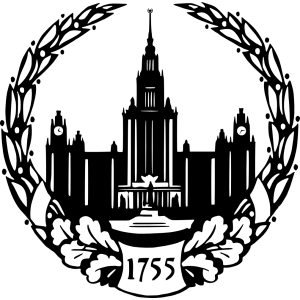Open Access


Improving fragment-based ab initio protein structure assembly using low-accuracy contact-map predictions
Publication type: Journal Article
Publication date: 2021-08-18
scimago Q1
wos Q1
SJR: 4.761
CiteScore: 23.4
Impact factor: 15.7
ISSN: 20411723
PubMed ID:
34408149
General Chemistry
General Biochemistry, Genetics and Molecular Biology
General Physics and Astronomy
Abstract
Sequence-based contact prediction has shown considerable promise in assisting non-homologous structure modeling, but it often requires many homologous sequences and a sufficient number of correct contacts to achieve correct folds. Here, we developed a method, C-QUARK, that integrates multiple deep-learning and coevolution-based contact-maps to guide the replica-exchange Monte Carlo fragment assembly simulations. The method was tested on 247 non-redundant proteins, where C-QUARK could fold 75% of the cases with TM-scores (template-modeling scores) ≥0.5, which was 2.6 times more than that achieved by QUARK. For the 59 cases that had either low contact accuracy or few homologous sequences, C-QUARK correctly folded 6 times more proteins than other contact-based folding methods. C-QUARK was also tested on 64 free-modeling targets from the 13th CASP (critical assessment of protein structure prediction) experiment and had an average GDT_TS (global distance test) score that was 5% higher than the best CASP predictors. These data demonstrate, in a robust manner, the progress in modeling non-homologous protein structures using low-accuracy and sparse contact-map predictions. Predicting protein structure from sequence is still not possible for all proteins. Here, the authors introduce a method that integrates deep learning and information about protein co-evolution to guide the prediction of non-homologous protein structures with greater accuracy.
Found
Nothing found, try to update filter.
Found
Nothing found, try to update filter.
Top-30
Journals
|
1
2
3
4
5
|
|
|
International Journal of Molecular Sciences
5 publications, 6.17%
|
|
|
Molecules
4 publications, 4.94%
|
|
|
Proteins: Structure, Function and Genetics
3 publications, 3.7%
|
|
|
Briefings in Bioinformatics
3 publications, 3.7%
|
|
|
Computational and Structural Biotechnology Journal
3 publications, 3.7%
|
|
|
Eating and Weight Disorders
2 publications, 2.47%
|
|
|
Artificial Intelligence Review
2 publications, 2.47%
|
|
|
ACS Omega
2 publications, 2.47%
|
|
|
Nucleic Acids Research
2 publications, 2.47%
|
|
|
Journal of Chemical Information and Modeling
2 publications, 2.47%
|
|
|
PLoS Computational Biology
2 publications, 2.47%
|
|
|
Journal of Biomolecular Structure and Dynamics
1 publication, 1.23%
|
|
|
Frontiers in Bioinformatics
1 publication, 1.23%
|
|
|
Membranes
1 publication, 1.23%
|
|
|
Physiologia
1 publication, 1.23%
|
|
|
Nature Computational Science
1 publication, 1.23%
|
|
|
Nature Protocols
1 publication, 1.23%
|
|
|
iScience
1 publication, 1.23%
|
|
|
Structure
1 publication, 1.23%
|
|
|
Biochemical and Biophysical Research Communications
1 publication, 1.23%
|
|
|
Journal of Molecular Biology
1 publication, 1.23%
|
|
|
Amino Acids
1 publication, 1.23%
|
|
|
Biochemistry
1 publication, 1.23%
|
|
|
The Scientific World Journal
1 publication, 1.23%
|
|
|
Nature Communications
1 publication, 1.23%
|
|
|
International Journal of Biological Macromolecules
1 publication, 1.23%
|
|
|
Journal of Agricultural and Food Chemistry
1 publication, 1.23%
|
|
|
Livestock Diseases and Management
1 publication, 1.23%
|
|
|
Neuromethods
1 publication, 1.23%
|
|
|
1
2
3
4
5
|
Publishers
|
2
4
6
8
10
12
14
16
|
|
|
Elsevier
16 publications, 19.75%
|
|
|
Springer Nature
15 publications, 18.52%
|
|
|
MDPI
12 publications, 14.81%
|
|
|
American Chemical Society (ACS)
7 publications, 8.64%
|
|
|
Oxford University Press
5 publications, 6.17%
|
|
|
Wiley
4 publications, 4.94%
|
|
|
Royal Society of Chemistry (RSC)
4 publications, 4.94%
|
|
|
Taylor & Francis
3 publications, 3.7%
|
|
|
Cold Spring Harbor Laboratory
3 publications, 3.7%
|
|
|
Bentham Science Publishers Ltd.
3 publications, 3.7%
|
|
|
Public Library of Science (PLoS)
2 publications, 2.47%
|
|
|
Frontiers Media S.A.
1 publication, 1.23%
|
|
|
Hindawi Limited
1 publication, 1.23%
|
|
|
American Association for the Advancement of Science (AAAS)
1 publication, 1.23%
|
|
|
Autonomous Non-profit Organization Editorial Board of the journal Uspekhi Khimii
1 publication, 1.23%
|
|
|
American Society for Microbiology
1 publication, 1.23%
|
|
|
2
4
6
8
10
12
14
16
|
- We do not take into account publications without a DOI.
- Statistics recalculated weekly.
Are you a researcher?
Create a profile to get free access to personal recommendations for colleagues and new articles.
Metrics
81
Total citations:
81
Citations from 2024:
44
(54.32%)
Cite this
GOST |
RIS |
BibTex
Cite this
GOST
Copy
Mortuza S. M. et al. Improving fragment-based ab initio protein structure assembly using low-accuracy contact-map predictions // Nature Communications. 2021. Vol. 12. No. 1. 5011
GOST all authors (up to 50)
Copy
Mortuza S. M., Zheng W., Zhang C., Li Y., Pearce R., Zhang Y. Improving fragment-based ab initio protein structure assembly using low-accuracy contact-map predictions // Nature Communications. 2021. Vol. 12. No. 1. 5011
Cite this
RIS
Copy
TY - JOUR
DO - 10.1038/s41467-021-25316-w
UR - https://doi.org/10.1038/s41467-021-25316-w
TI - Improving fragment-based ab initio protein structure assembly using low-accuracy contact-map predictions
T2 - Nature Communications
AU - Mortuza, S. M.
AU - Zheng, Wei
AU - Zhang, Chengxin
AU - Li, Yang
AU - Pearce, Robin
AU - Zhang, Yang
PY - 2021
DA - 2021/08/18
PB - Springer Nature
IS - 1
VL - 12
PMID - 34408149
SN - 2041-1723
ER -
Cite this
BibTex (up to 50 authors)
Copy
@article{2021_Mortuza,
author = {S. M. Mortuza and Wei Zheng and Chengxin Zhang and Yang Li and Robin Pearce and Yang Zhang},
title = {Improving fragment-based ab initio protein structure assembly using low-accuracy contact-map predictions},
journal = {Nature Communications},
year = {2021},
volume = {12},
publisher = {Springer Nature},
month = {aug},
url = {https://doi.org/10.1038/s41467-021-25316-w},
number = {1},
pages = {5011},
doi = {10.1038/s41467-021-25316-w}
}






















